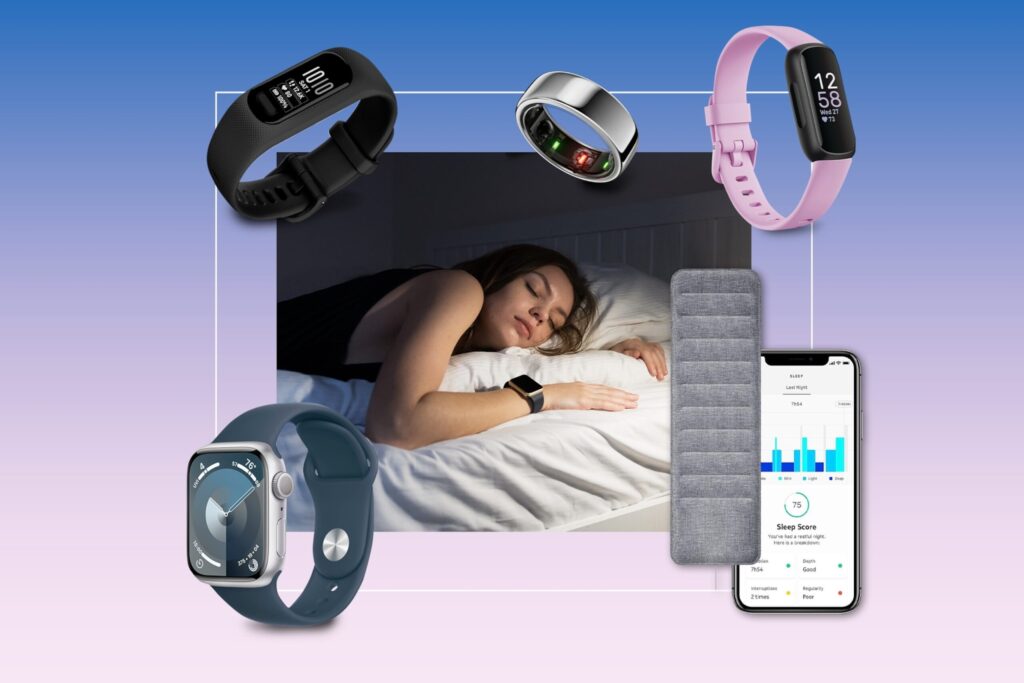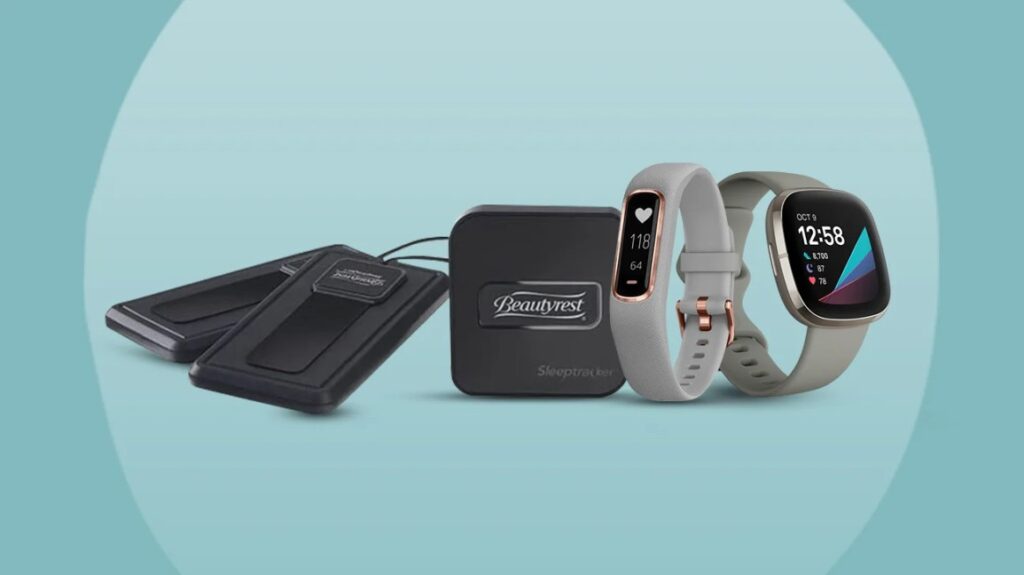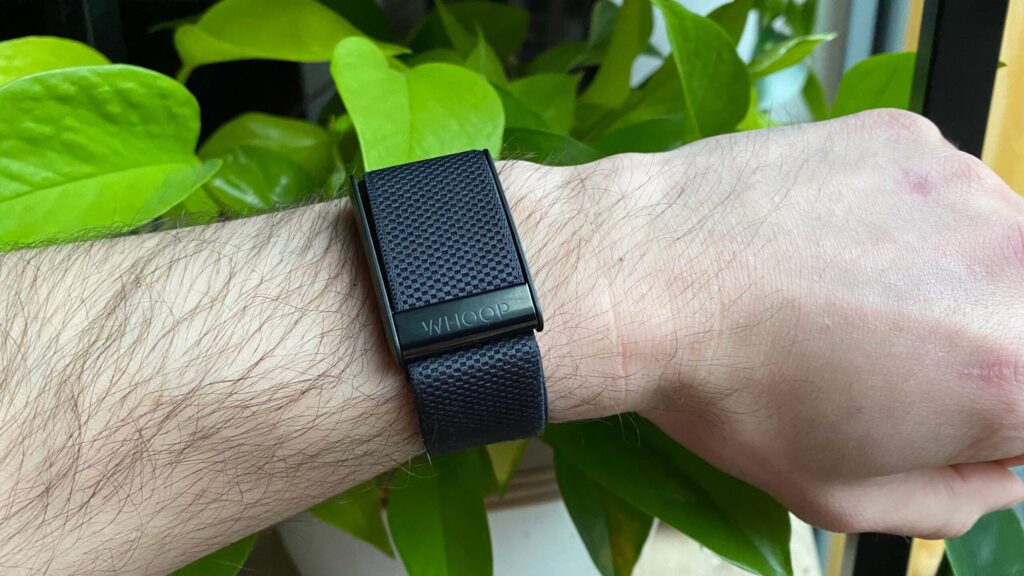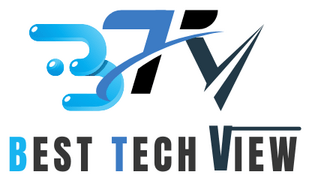Looking for the best sleep trackers to improve your nightly rest in 2026? With so many options flooding the market, how do you pick one that truly fits your needs? Sleep trackers can provide detailed insights through daily sleep scores, but choosing the right device can feel overwhelming.
This guide highlights the top sleep trackers available this year, comparing features like accuracy, comfort, and price. Whether you want in-depth sleep analysis or simple daily summaries, we cover everything to help you make an informed choice.
Experts like Dr. Michael Breus emphasize how personalized tracking can boost your sleep health.
Ready to find the perfect sleep tracker that matches your lifestyle? Let’s dive into the essential factors you must consider before investing in the best sleep tracker in 2026. Your path to better sleep starts here.

Credit: www.nationalgeographic.com
Sleep Smarter: Why Tracking Your Sleep Matters
Sleep is essential for good health. Many people struggle with sleep quality. To help, sleep trackers have become popular. They monitor your sleep patterns. This helps you understand your sleep better. This blog will explore the best sleep trackers available.
What Sleep Trackers Actually Do
Sleep tracking offers many benefits. It helps you understand your sleep patterns. You can see how long you sleep each night. You can also see the quality of your sleep.
- Improves sleep quality: Knowing your sleep patterns can help improve them.
- Identifies sleep disorders: Trackers can alert you to potential sleep issues. Identifies apnea, restless leg syndrome, or insomnia signals
- Helps build healthy habits: They motivate you to maintain a healthy sleep routine.
- Better Mental Health: Sleep quality impacts mood, anxiety, and focus
- Physical Wellness: Enhances recovery, immune function, and metabolism
- Lifestyle Optimization: Helps regulate exercise, caffeine intake, and bedtime routines
Tracking your sleep can lead to better health. It can also improve your mood and productivity.
5 Ways Sleep Trackers Can Improve Your Life
Sleep trackers use various methods to monitor sleep. Some use sensors to detect movement. Others track heart rate and breathing patterns.
- Accelerometers: Detect movement and restlessness
- Heart Rate Monitors: Measure pulse variability, indicating sleep stages
- Gyroscopes: Track orientation and tossing/turning
- Pulse Oximeters: Monitor blood oxygen levels (especially useful for sleep apnea)
- Microphones: Detect snoring or breathing patterns in some models
| Type of Tracker | How It Works |
|---|---|
| Wristbands | Worn on the wrist, tracks movement and heart rate. |
| Smartphones | Place beside you, uses a microphone and sensors. |
| Smartwatches | Wear on wrist, tracks multiple metrics like heart rate. |
These devices collect data while you sleep. They analyze this data to give insights. This helps you understand your sleep patterns. It can guide you to better sleep habits.
Sleep trackers are easy to use. They provide valuable information about your sleep. This can lead to better health and well-being.
Features That Make the Best Sleep Trackers Stand Out
Finding the best sleep tracker can improve your sleep quality. But what features make a sleep tracker stand out? Here are the top features to look for in a sleep tracker.
How Accurate Are Modern Sleep Trackers in 2026?
An accurate sleep tracker provides reliable data. It can detect different sleep stages like light, deep, and REM sleep. Accurate sleep tracking helps you understand your sleep patterns.
Comfort & Design: What Matters for a Good Night’s Rest
Comfort is crucial for sleep trackers. A comfortable tracker ensures you can wear it all night. Look for soft bands and lightweight designs.
- Soft, adjustable bands
- Lightweight design
- Skin-friendly materials
Data Analytics That Help You Sleep Better
Good data analysis is essential for a sleep tracker. It should provide clear insights and trends. Look for trackers that offer:
- Sleep quality scores
- Detailed sleep stage analysis
- Personalized sleep tips
Data analysis helps you improve your sleep habits over time.
Must-Have Features in the Best Sleep Trackers Today
Not all sleep trackers are created equal. Here are some must-have features to consider before making a purchase:
- Sleep Stage Detection: Ability to differentiate light, deep, and REM sleep
- Heart Rate Monitoring: For tracking cardiovascular health and sleep quality
- SpO2 Monitoring: To detect breathing issues like sleep apnea
- Smart Alarm: Wakes you up during the optimal sleep stage
- Sleep Score: Provides an easy-to-understand rating of your sleep
- Mobile App Integration: User-friendly apps with detailed reports
- Battery Life: Long-lasting battery for uninterrupted tracking
- Comfort: Especially important for wearables; lightweight and hypoallergenic materials
- Data Privacy: Clear policies on data storage and sharing
Types of Sleep Trackers: Wearable vs. Non-Wearable
When diving into the world of sleep trackers, you’ll mainly encounter two categories:
Wearable Sleep Trackers
These devices, like smartwatches and fitness bands, are worn on the wrist, finger, or chest. They offer the advantage of constant monitoring and often double up as fitness trackers.
Pros:
- Continuous heart rate and movement tracking
- Portable and convenient
- Often multifunctional
Cons:
- It may feel uncomfortable for some during sleep
- Battery life concerns
Non-Wearable Sleep Trackers
Placed under the mattress or on the bedside table, these devices use sensors to detect movement, breathing, and sometimes sound.
Pros:
- Non-intrusive; no need to wear anything
- Good for people who dislike wrist devices
Cons:
- Less precise with heart rate or oxygen data
- Limited portability
Choosing between these depends largely on personal comfort and the kind of data you want to gather.
Wearable Sleep Trackers
Wearable sleep trackers are popular tools for monitoring sleep patterns. They provide valuable insights into sleep quality and duration. These devices are usually worn on the wrist and use sensors to collect data. Below, we explore two popular categories: smartwatches and fitness bands.
Smartwatches
Smartwatches are advanced wearable devices that offer multiple features. They track sleep, heart rate, and physical activities. Popular brands include Apple, Samsung, and Garmin. Here’s a quick look at some key features:
| Brand | Sleep Tracking Features | Additional Features |
|---|---|---|
| Apple Watch | Sleep stages, heart rate | ECG, fitness tracking, notifications |
| Samsung Galaxy Watch | Sleep score, REM cycles | Blood oxygen, fitness tracking, notifications |
| Garmin | Sleep duration, sleep quality | GPS, fitness tracking, notifications |
Fitness Bands
Fitness bands are simpler and more affordable than smartwatches. They focus primarily on health and fitness tracking. Popular brands include Fitbit, Xiaomi, and Huawei. Here are some notable features:
- Fitbit Charge: Sleep stages, silent alarms
- Xiaomi Mi Band: Sleep quality, REM tracking
- Huawei Band: Sleep analysis, heart rate tracking
Fitness bands are lightweight and easy to use. They provide essential sleep tracking features at a lower cost. Both smartwatches and fitness bands offer valuable insights into your sleep patterns.
Non-Wearable Sleep Trackers for Effortless Monitoring
Non-wearable sleep trackers offer a convenient way to monitor sleep quality. They gather data without needing to wear a device. This type of tracker is perfect for those who find wearable devices uncomfortable. Here, we explore two popular types of non-wearable sleep trackers.
Under-Mattress Sensors: Invisible But Powerful
Under-mattress sensors are hidden beneath your bed. They track sleep by sensing body movements and heart rate. These sensors are very accurate. They can record various sleep stages. Some top models include:
| Model | Features | Price |
|---|---|---|
| Withings Sleep | Sleep Cycle Analysis, Snore Detection | $99 |
| Beddit 3.5 | Heart Rate Monitoring, Sleep Score | $149 |
- Withings Sleep: This sensor offers detailed sleep analysis.
- Beddit 3.5: Tracks sleep and heart rate with high accuracy.
Bedside Devices That Track Without Touching You
Bedside devices sit next to your bed. They use radar or sound waves to monitor sleep. These devices are easy to set up. They also provide additional features like white noise. Some popular options are:
| Model | Features | Price |
|---|---|---|
| Google Nest Hub | Sleep Sensing, Smart Home Integration | $99 |
| SleepScore Max | Sleep Analysis, Sleep Improvement Tips | $149 |
- Google Nest Hub: Integrates with smart home systems for convenience.
- SleepScore Max: Provides tips to improve sleep quality.
Best Sleep Tracker Apps for Your Smartphone in 2026
Smartphone apps for sleep tracking help you understand your sleep patterns. They use your phone’s sensors to track your movements at night. These apps are easy to use and often come with extra features.
Top-Rated Sleep Tracking Apps Compared
| App Name | Platform | Rating |
|---|---|---|
| Sleep Cycle | iOS, Android | 4.5 Stars |
| Pillow | iOS | 4.3 Stars |
| Sleep as Android | Android | 4.4 Stars |
Essential App Features to Watch For
- Accuracy: The app should provide accurate sleep data.
- User Interface: The app should be easy to navigate.
- Compatibility: Check if it works on your device.
- Extra Features: Look for smart alarms and sleep advice.
- Data Export: Ability to export sleep data for analysis.
Choosing the right sleep tracking app can improve your sleep quality. Look for the features that matter most to you. Experiment with different apps to find your perfect match.
How to Choose the Best Sleep Trackers for Your Needs
Ask yourself:
- Do I prefer a wearable or non-wearable device?
- How important is accuracy for my needs?
- Am I looking for a multi-purpose fitness tracker or just sleep-focused?
- What’s my budget?
- Do I want smart alarm features or personalized coaching?
Answering these will narrow your options and help you pick the best sleep tracker tailored for your lifestyle.
Selecting the perfect sleep tracker can be overwhelming. With many options, it’s essential to narrow down your choices.
Budget vs. Features: Finding the Right Balance
One of the first things to consider is your budget. Sleep trackers come in a range of prices. Here’s a simple table to help you understand the typical costs:
| Price Range | Features |
|---|---|
| $50 – $100 | Basic sleep tracking, heart rate monitor |
| $100 – $200 | Advanced sleep stages, smart alarms |
| $200 and above | Detailed analytics, integration with other devices |
Choose a tracker that fits your budget and needs.
Personal Sleep Habits & Preferences to Consider
Next, think about your personal preferences. Do you prefer a wrist-worn tracker or a device under your mattress? Here are some options:
- Wrist-worn trackers: Comfortable and portable
- Under-mattress trackers: Non-intrusive, no need to wear
- Smartphone apps: Convenient and often free
Consider what feels most comfortable for you. Some people prefer wrist-worn trackers because they are portable. Others choose under-mattress trackers because they are non-intrusive. Smartphone apps are convenient and often free, offering a budget-friendly option.
Think about the features you need. Do you want detailed sleep stages or just basic tracking? Different trackers offer various features. Some provide smart alarms to wake you at the optimal time. Others give detailed analytics to help you understand your sleep patterns.
Making the right choice involves balancing budget and personal preferences. With the right sleep tracker, you can improve your sleep quality and wake up refreshed.
Leading Sleep Tracker Brands to Watch in 2026
The market for sleep trackers has exploded, with many brands offering innovative products. Some trusted names include:
- Fitbit: Renowned for accuracy and user-friendly apps
- Withings: Stylish, hybrid models with comprehensive tracking
- Oura Ring: A discreet ring-based tracker focusing on readiness scores
- Garmin: Robust fitness trackers with advanced sleep analytics
- Whoop: Subscription-based tracker with in-depth recovery metrics
Our Top 5 Picks: Best Sleep Trackers Reviewed
In a hurry? The table below compares our top 5 sleep trackers side by side so you can quickly see which one fits your needs.
| Sleep Tracker | Type | Key Sleep & Health Features | *Battery Life | Subscription | Best For |
Fitbit Charge 6 – Best for all‑in‑one health tracking | Wrist band | Sleep score & detailed sleep stages (REM / deep / light); heart rate, SpO₂, HRV; Smart Wake alarm; workout auto‑detection | ~6–7 days | Fitbit Premium for advanced sleep analytics (optional) | General users wanting a budget‑friendly, feature‑rich health and sleep tracker |
Oura Ring Gen 3 – Best for minimalist comfort | Smart ring | Sleep stages, HR, HRV, SpO₂, body temperature; readiness score and nightly sleep insights | ~5–7 days | Paid membership required for full insights | Users who dislike wristbands but want accurate, in‑depth sleep & readiness data |
Withings Sleep Analyzer – Best non‑wearable | Under‑mattress pad | Sleep stages, snoring, breathing disturbances; sleep apnea detection and doctor‑ready reports | Always plugged in (no charging) | No ongoing subscription required | People who don’t want to wear a device and want to monitor apnea or breathing issues |
Garmin Venu 3 – Best for athletes & runners | Smartwatch | Sleep stages & sleep score; HRV, SpO₂, stress; Body Battery; built‑in GPS; multi‑sport modes | A few days per charge | No mandatory subscription | Active users and runners who want advanced training tools plus strong sleep tracking |
Whoop Strap 4.0 – Best for recovery‑focused use | Band / strap | Sleep duration & efficiency; HRV; daily strain; recovery scores and personalized coaching | Several days (varies with use) | Monthly membership required | Athletes focused on optimizing recovery and training load with app‑based coaching |
Battery life is approximate and varies with settings and usage.
### 1. Fitbit Charge 6 – Best for All-in-One Health Tracking
**Highlights**
– Tracks heart rate, SpO₂, HRV, and detailed sleep stages
– Sleep score, Smart Wake alarm
– Google Maps and Wallet integration
**Battery life**
– Around 6–7 days on a single charge
**Pros**
– Reliable core sleep metrics (sleep score, REM/deep/light stages)
– Automatic workout detection (SmartTrack)
– Good overall health tracking for the price
**Cons**
– GPS is unreliable unless paired with a phone
– Advanced sleep analytics locked behind a Fitbit Premium subscription
– Future device support depends on Google’s plans
**Summary**
A feature-packed, budget-friendly health and sleep tracker with strong battery life. Great for general users, though serious athletes may want more precise training metrics.
### 2. Oura Ring Gen 3 – Best for Minimalist Comfort
**Highlights**
– Sleek titanium ring that tracks sleep stages, HR, HRV, SpO₂, and body temperature
– Readiness scores and rich nightly insights
**Battery life**
– Typically 5–7 days per charge
**Pros**
– Highly rated for accurate sleep and readiness insights
– Compact and unobtrusive – perfect if you dislike wristbands
– Very comfortable to wear overnight
**Cons**
– Requires a monthly membership for full data access
– Newer Gen 4 has improved sensors, though Gen 3 still offers strong value
**Summary**
A sleek, comfortable ring with comprehensive sleep data. Ideal if you want high-quality insights without wearing a watch or band.
### 3. Withings Sleep Analyzer – Best Non‑Wearable Option
**Highlights**
– Under‑mattress sensor that tracks sleep stages, snoring, heart rate, and breathing
– Can detect potential sleep apnea events
**Battery/power**
– Always plugged in – no charging required
**Pros**
– Zero effort: just sleep, no device on your body
– Medical‑grade sleep apnea detection and shareable reports for doctors
**Cons**
– Only works in bed; no daytime metrics or readiness score
– Not portable like a wearable tracker
**Summary**
Perfect if you prefer completely passive tracking or want to monitor breathing/apnea without wearing a device at night.
### 4. Garmin Venu 3 – Best for Athletes & Runners
**Highlights**
– Full smartwatch with advanced sleep staging, HRV, SpO₂, stress, and Body Battery
– Built‑in GPS and rich Garmin training ecosystem
**Battery life**
– A few days per charge (shorter than simple bands or rings)
**Pros**
– Excellent sports and training tools with multi‑sport modes
– Strong mix of health, fitness, and sleep insights
– All‑in‑one wearable you can use all day
**Cons**
– Bulkier and heavier than minimalist trackers
– Battery life is weaker than dedicated sleep bands or rings
**Summary**
Ideal for sporty users who want a serious training watch that also delivers effective, useful sleep tracking.
### 5. Whoop Strap 4.0 – Best for Recovery‑Focused Training
**Highlights**
– Tracks sleep, HRV, daily strain, and recovery
– App gives personalized coaching and readiness scores
**Battery life**
– Several days per charge (depends on usage)
**Pros**
– Designed specifically around recovery and performance
– Focuses on actionable guidance, not just raw numbers
**Cons**
– Requires an ongoing paid membership
– No display – you must use the app for data
– Less emphasis on detailed, consumer‑style sleep stage breakdowns
**Summary**
A coaching‑first tracker made for people who care deeply about training recovery and are happy to pay monthly for continuous guidance.
Interpreting Sleep Data
Interpreting sleep data is crucial for improving sleep quality. Sleep trackers offer detailed insights into your sleep patterns. Understanding this data helps you make informed decisions about your sleep habits.
What Sleep Stages Really Mean
Most sleep trackers break down your sleep into different stages. These stages include light sleep, deep sleep, and REM sleep.
- Light Sleep: This stage is important for memory and learning.
- Deep Sleep: This stage is crucial for physical recovery.
- REM Sleep: This stage is vital for emotional health.
Each stage has a different role. Knowing the time spent in each stage can help identify sleep issues.
Key Metrics You Should Track Nightly
Sleep trackers also provide various sleep quality metrics. These metrics help you understand your overall sleep health.
| Metric | Explanation |
|---|---|
| Sleep Duration | Tracks the total amount of time you sleep. |
| Sleep Efficiency | Measures the percentage of time spent asleep while in bed. |
| Awake Time | Shows how long you were awake during the night. |
These metrics offer a comprehensive view of your sleep quality. By monitoring these, you can identify areas for improvement.

Credit: www.healthline.com
Turning Sleep Tracker Insights Into Real Improvements
Sleep trackers have transformed the way we understand our sleep patterns. By collecting data, these devices help us improve sleep quality. Let’s dive into how you can use this data to sleep better.
Setting Personalized Sleep Goals
Setting goals is the first step to improving your sleep. Use your sleep tracker data to set realistic goals. For example, aim for 7-8 hours of sleep each night. Track your progress and adjust your goals as needed.
Lifestyle Changes Based on Sleep Data
Based on the data, you might need to make some lifestyle changes. Here are a few suggestions:
- Go to bed at the same time every night.
- Avoid caffeine and heavy meals before bedtime.
- Keep your bedroom dark and cool.
Use your sleep tracker to see how these changes affect your sleep. Adjust your habits based on the results.
Here’s a table to help you track your changes and their impact:
| Change | Impact on Sleep |
|---|---|
| Consistent Bedtime | Better sleep quality |
| Avoiding Caffeine | Fall asleep faster |
| Dark Room | Longer sleep duration |
Keep monitoring your data and making small adjustments. Over time, you’ll see significant improvements in your sleep quality.
What’s Next? The Future of Sleep Tracking
Sleep tracking technology is evolving rapidly. The future promises exciting advancements. New features will improve how we monitor sleep patterns. These innovations aim to enhance our overall health and well-being.
Most Exciting Innovations Coming in 2026 and Beyond
Upcoming sleep trackers will use advanced sensors. These sensors will provide more accurate data. They will monitor heart rate, breathing, and even brain waves. Users will get a detailed look at their sleep stages.
Many devices will include AI technology. This will help analyze sleep data better. AI can offer personalized tips for improving sleep. This makes the sleep tracking experience more effective.
Wearable devices are getting smarter. Future models will be more comfortable. They will offer longer battery life. You can wear them without any discomfort. These wearables will blend seamlessly into daily life.
How Sleep Data Will Integrate with Overall Health Tech
Sleep trackers will integrate with other health tech. They will sync with fitness trackers and smartwatches. This will give a full picture of your health. You will see how exercise and diet affect sleep.
Health apps will also play a role. They will collect data from sleep trackers. This data helps create a comprehensive health profile. You can share this profile with healthcare providers. It allows for better medical advice and treatment.
Imagine a smart home that helps you sleep better. Future sleep trackers will connect with smart home devices. Lights can dim, and temperatures adjust based on your sleep needs.
Here’s a table highlighting some of the upcoming features in sleep tracking technology:
| Feature | Description |
|---|---|
| Advanced Sensors | More accurate monitoring of heart rate, breathing, and brain waves. |
| AI Technology | Personalized sleep improvement tips based on data analysis. |
| Smarter Wearables | Comfortable and longer battery life for daily use. |
| Health Tech Integration | Sync with fitness trackers, health apps, and smart home devices. |
These advancements make sleep tracking more efficient. They provide actionable insights to improve sleep quality. The future of sleep tracking looks promising and innovative.

Credit: www.cnn.com
Frequently Asked Questions
Can sleep trackers diagnose sleep disorders?
No, but they can highlight symptoms that warrant a medical evaluation.
How long does it take to see improvements after using a sleep tracker?
Usually, a few weeks of consistent use and applying recommendations are required.
Are sleep trackers safe to use every night?
Yes, they’re non-invasive and designed for daily use.
What Sleep Tracker Is The Most Accurate?
The Fitbit Sense is among the most accurate sleep trackers. It offers detailed sleep stage tracking and heart rate monitoring.
Are Sleep Trackers Worth It?
Yes, sleep trackers are worth it. They provide valuable insights into sleep patterns, helping improve sleep quality and overall health.
Is Whoop Or Oura Better For Sleep?
Oura is often preferred for sleep tracking due to its detailed insights and accuracy. Whoop excels in overall fitness monitoring. Choose based on your primary need.
What Is The Best Non-wearable Sleep Tracker?
The Withings Sleep Tracking Mat is often considered the best non-wearable sleep tracker. It provides detailed sleep analysis and heart rate monitoring.
Final Thoughts: Choosing the Right Tracker for Better Sleep
Selecting the right sleep tracker can improve your sleep quality significantly. Choose one that fits your lifestyle and needs. With many options available, finding the perfect tracker is easier than ever. Rest better knowing you have the best tool to monitor your sleep.
Sweet dreams await with the right sleep tracker!

A passionate tech blogger and the founder of Best Tech View, a dynamic platform dedicated to all things technology. With a keen interest in the tech, Ahmad strives to provide insightful and engaging content on the latest tech trends, and breakthroughs.
